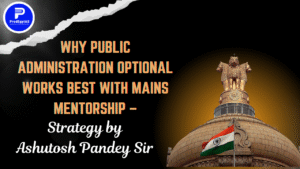Answer: The ideal of constitutionalism as “government by limited powers” implies that the powers of the government are defined, limited, and subject to constitutional constraints. It ensures that the government operates within the boundaries set by the constitution, respects the rule of law, and protects individual rights and freedoms.
In the context of India, it can be argued that while constitutionalism as “government by limited powers” is an integral part of the constitutional framework, the extent to which it has been a functional reality is subject to various factors and challenges. Here are some key points to consider:
Centralization of Powers: Over the years, there has been a concern about the centralization of powers in the central government, particularly in relation to the states. The central government has often been accused of encroaching on the powers of the states, thereby diluting the principle
of limited government powers at the regional level.
In conclusion, while the ideal of constitutionalism as “government by limited powers” is enshrined in the Indian Constitution, its functional reality is influenced by various factors. The effective implementation of constitutional limitations requires a commitment to the rule of law, an independent judiciary, a vigilant civil society, and a culture of accountability.
Continuous efforts are needed to ensure that the government operates within the defined limits, respects individual rights, and upholds the principles of constitutionalism.
Separation of Powers: The principle of separation of powers is an important aspect of constitutionalism. It ensures a system of checks and balances where the powers of the government are distributed among the executive, legislative, and judicial branches. While India follows the doctrine of separation of powers, there have been instances where the boundaries between these branches have been blurred.
Judicial Activism: The judiciary plays a vital role in upholding constitutionalism by interpreting and enforcing the constitution. The Indian judiciary has been proactive in safeguarding fundamental rights, checking executive excesses, and ensuring the rule of law.
Emergency Powers: The Indian Constitution includes provisions for the declaration of a state of emergency, which grants the government additional powers during times of crisis. While these emergency provisions are intended to be exceptional and limited in scope, their implementation in the past has raised concerns about their misuse and the potential erosion of constitutional limitations.
Legislative Powers: The legislature is responsible for enacting laws within the framework of the constitution. However, there have been instances where legislation has been challenged for being beyond the powers granted by the constitution or for infringing on individual rights.
UPSC General Studies Paper Preparation
| Topic | |
| UPSC Syllabus | GS Genius-50 Program |
| Public administration crash course | UPSC GS Mains 2025 Study Material |
| About the Author: Nitin Kumar Singh |




